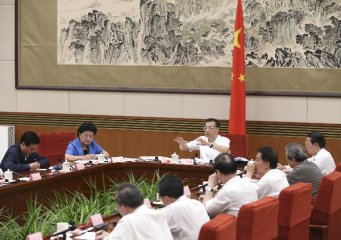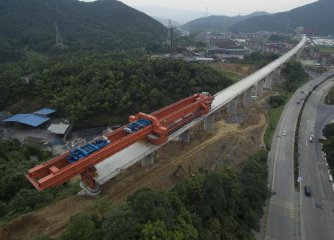
A recent guideline released by the Chinese authorities to reform the country's investment and financing system will help promote two-way flows of the private capital, said experts.
According to the National Bureau of Statistics (NBS), private investment increased only 2.8 percent in the first half of 2016, down 1.1 percentage points from the growth in the first five months. The private sector fixed-asset investment in the first half of the year accounted for 61.5 percent of the national fixed-asset investment, down 3.6 percentage points from the same period of last year.
Despite the fall in the private investment, the country's overseas investment in the period continued to increase. Compared to the last year, China's outbound investment growth was up to 60 percent, said Huang Qunhui, head of the Institute of Industrial Economics of the Chinese Academy of Social Sciences (CASS).
In the first half of 2016, M&A transactions involving the Chinese enterprises amounted to 375.8 billion U.S. dollars, following the record transactions of 476.4 billion U.S. dollars in the second half of 2015. In the meantime, China's overseas acquisition transactions in the first half of the year surpassed full-year scale of last year and amounted to 111.6 billion U.S. dollars, according to a research report of the China Merchants Securities.
The China Merchants Securities believed that the Chinese private enterprises have become a leading force in the overseas acquisitions. It is worth noting that the funds used for overseas M&As and acquisitions in the first half of the year are equivalent to 25 percent of the private investment in the first five months, showing the diversion degree of the outbound direct investment from the private investment Industry insiders note that the diversion is not the key for the fall in the private investment. It was affected mainly by the lackluster economic environment, depression in the traditional industries and problems of the investment and financing mechanism.
Majority of the cross-border funds are not fleeing the country, but invested in overseas projects in the form of M&A funds and industry funds to realize business upgrading and thus feed back the domestic development, said Xie Yong, deputy general manager of the Shanghai Waigaoqiao Free Trade Zone United Development Co., Ltd, adding that the positive role of these outbound investment funds should be affirmed.
The guideline is to improve the investment and financing system to help projects find funds via compliance channels and also let the capita see the projects requiring investments, in an effort to reduce capital risk and enhance convenience of enterprises to get investment, said Xie. In fact, against the backdrop of the internationalization, obstacles for international flow of capital have been on the decrease.
Competition in attracting investment is not only among the local regions, but among countries. In particular, implementation of the Belt and Road Initiative will not obviously reverse the trend of the outbound direct investment, said experts.
























Latest comments